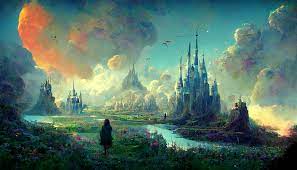Why I Love Magical Realism

Exploring the allure of magical realism literature
Understanding the blend of reality and fantasy in magical realism
Delving into the challenges of writing magical realism
The significance of magical realism in literature
Why I Love Magical Realism
Magical realism has always been a fascinating genre to me. As a reader, I am drawn to the blending of reality and fantasy, the way the magical elements are seamlessly integrated into the everyday world. As a writer, I find the genre challenging yet rewarding, requiring a delicate balance between the ordinary and the extraordinary.
Magical realism is a genre that emerged in Latin America in the mid-twentieth century, but it has since spread to other parts of the world. At its core, magical realism is a literary style that blends elements of the supernatural or magical with the real world. In magical realism, the fantastic is presented as ordinary, and the mundane is made magical.
What I find most compelling about magical realism is the way it challenges our perception of reality. In magical realism, the fantastic and the mundane are intertwined, and there is often no clear distinction between the two. This blurring of boundaries creates a sense of ambiguity and mystery, leaving the reader to question what is real and what is not.
As a writer, I have found that magical realism allows for a great deal of creative freedom. Because the genre is not bound by the rules of traditional fantasy or science fiction, there is room to explore a wide range of themes and ideas. Magical realism can be used to explore issues of identity, history, culture, and social justice, among other topics.
The craft of integrating magical elements into everyday life
Gabriel Garcia Marquez's influence on magical realism
Isabel Allende's portrayal of magical realism in literature
Examining the symbolism in magical realism novels
Masters of Magical Realism: Marquez & Allende
One of my favorite examples of magical realism is Gabriel Garcia Marquez’s “One Hundred Years of Solitude.” In this novel, Marquez weaves together the story of the Buendia family with elements of fantasy and magic. The characters in the novel are surrounded by strange occurrences, such as a woman who ascends into the sky, a man who lives for centuries, and a plague of insomnia that affects the entire town. These magical elements are presented in a matter-of-fact way, as if they are simply a part of everyday life.
Unveiling the mysteries of magical realism storytelling
Analyzing the themes of identity in magical realism
Discovering the cultural impact of magical realism
Navigating the ambiguity of reality in magical realism
What I find most interesting about “One Hundred Years of Solitude” is the way the magical elements are used to comment on the real world. The novel is a commentary on the history of Latin America, and the magical elements are used to explore the region’s cultural identity and the impact of colonialism. The novel is also a meditation on the cyclical nature of history, and the way events seem to repeat themselves over time.
Magical realism can also be used to explore personal and emotional themes. In Isabel Allende’s “The House of the Spirits,” magical elements are used to explore the inner lives of the characters. The novel tells the story of the Trueba family over the course of several generations, and it is filled with supernatural occurrences such as telekinesis, clairvoyance, and ghosts. These elements are used to explore the characters’ emotions and relationships, and to comment on issues such as gender, power, and social class.
Magical realism can be a challenging genre to work in. It requires a delicate balance between the ordinary and the extraordinary, and it can be difficult to find the right tone and style. The key, is to create a world that feels real and believable, even as it is infused with magical elements.
The role of magical realism in exploring history and culture
Capturing the essence of magical realism in writing
Exploring the boundaries of reality through magical realism